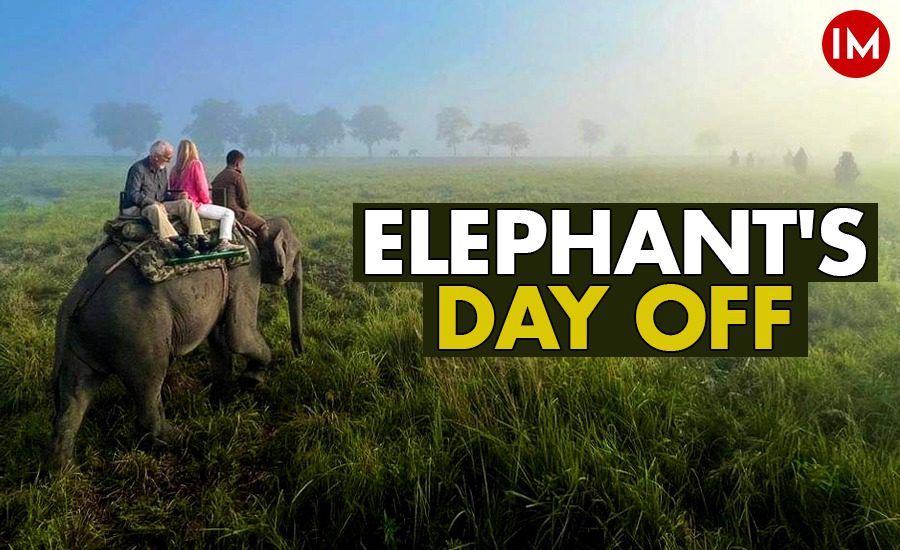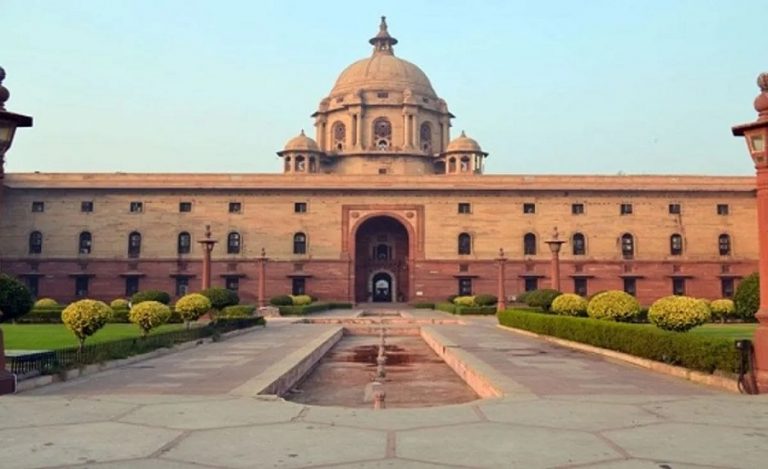At the height of the peak season, and on the eve of Christmas, came the news that the hugely popular elephant safari in Kaziranga National Park has been suspended indefinitely, leaving tourists in dismay.
Not only is Kaziranga a sought after wildlife destination for its most famous resident, the one horned rhino, but the thrill of viewing them from close quarters riding on the back of an elephant is an added thrill.
Hence, there was a collective sigh of relief when the Christmas Day brought glad tidings with an announcement that the suspension has been called off and the elephant safari would resume from that day itself.
Indian Masterminds spoke to Field Director of Kaziranga National Park, Ms. Sonali Ghosh, an IFS officer of 2000 batch, to know what had led to the abrupt suspension of the elephant safari, and how it was quickly resumed.
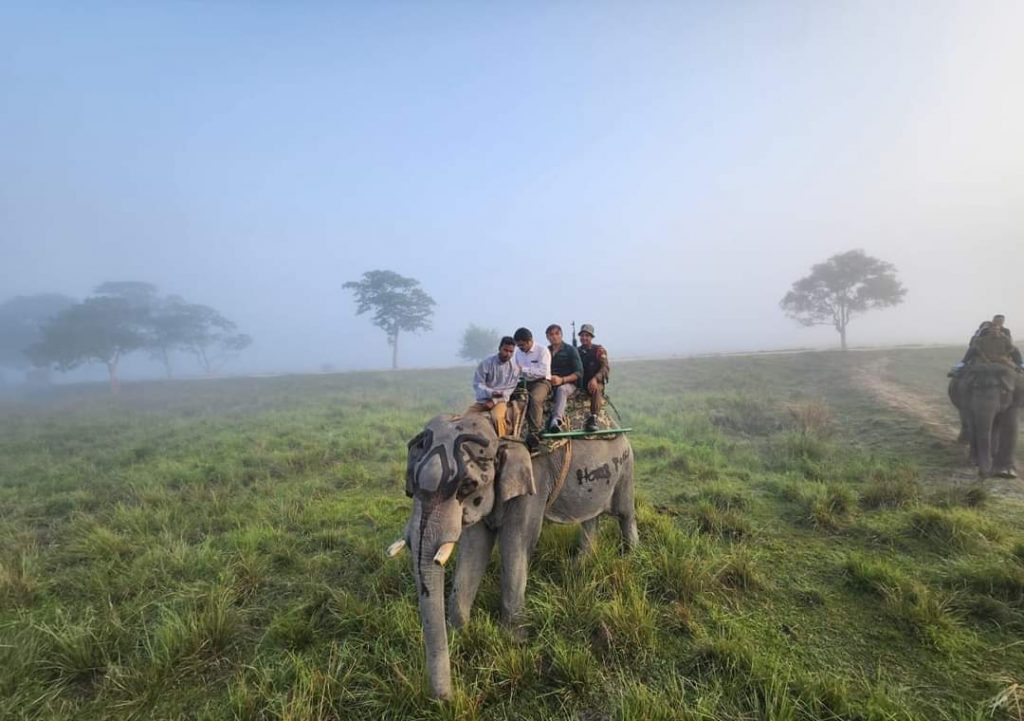
PRIVATE OPERATORS MIFFED
The call to go on strike was actually given by the private elephant safari operators, who were miffed with a directive from the Park authorities that one seat must be reserved for the forest department in every elephant. Each elephant can carry 3-4 persons per trip. So, reserving one seat for the department would bring the earnings down for the operators.
Ms. Ghosh said, “We pay them Rs. 900 per seat. Whereas they charge up to Rs. 3000 per seat from tourists during the peak season.”
The official directive immediately sparked resentment and the Elephant Safari Association announced a strike and a halt in safari, sending the park officials and the tourists who had arrived in the various resorts near the Kaziranga landscape into a tizzy. Some had already booked while some were hoping to do so. And, the sudden strike dampened their holiday spirits and threatened to take the thrill of an early morning elephant safari into the wild away from them.
Alarmed Park officials immediately went into a huddle and deliberated on how to resolve the issue. After many rounds of discussions with the members of the Elephant Safari Association, finally, an agreement was reached.
Ms. Ghosh said, “We promised to increase the safari trips per day from 2 to 3 in lieu of a reserved seat per elephant for the forest department to diffuse the tourism pressure on peak days.”
Through mutual agreement, the deal was finalised and the Safari Association called off their strike and resumed elephant safari from 25 December, much to the relief of all stakeholders.
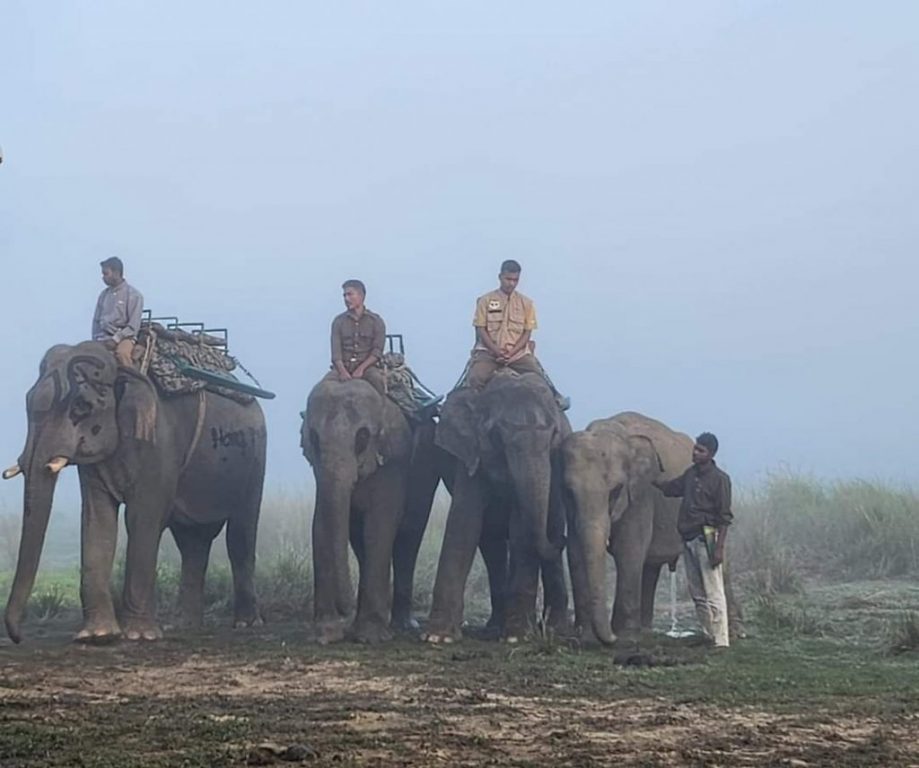
HIGH MAINTENANCE
The reason why the private safari operators, more specifically the elephant owners, did not like the ‘reservation’ directive from the forest department is primarily the dip in their earnings it would create, as maintaining an elephant involves a mammoth cost.
A senior Indian Forest Service officer from the state said that Rs. 25-30 thousand go into an elephant’s care per month. “It will be like maintaining a white elephant if they don’t earn enough. These safaris run for only about 3 months. So, during that season, they need to earn as much they can,” he said.
SUCCESSFUL RESOLUTION
In effect, the elephant safari remained suspended for only a day, and the elephants were back in action on Christmas day. The Park officials had issued the directive to reserve one seat for the forest department per elephant citing security reasons. However, the safari association opposed the directive and called for a strike, which was lifted within a day after an amicable agreement was reached after both parties’ demands were met.
The main problem arose from the fact that during the peak season, the park authorities face an acute shortage of elephants for the safaris. A total of 6809 tourists availed elephant safari in November this year whereas a total of 5162 tourists have availed the safari in December so far, under the Eastern Assam Wildlife Division.
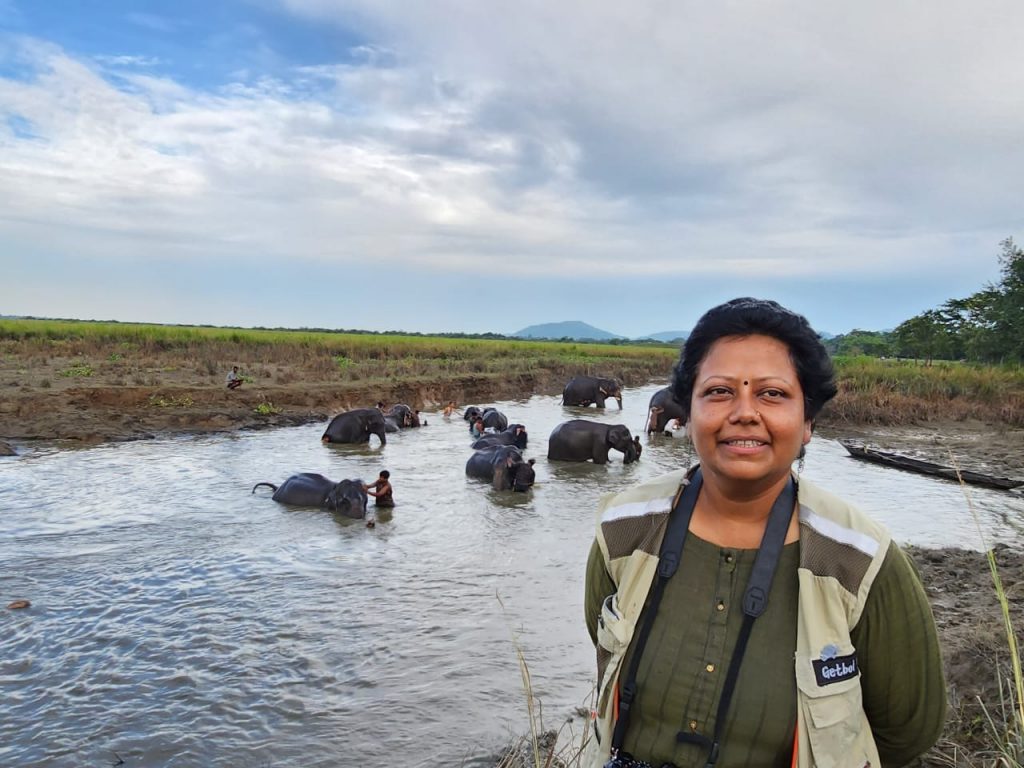
Ms. Ghosh said, “Basically, this was a demand and supply issue. The problem arose in the Bagori range, where 34 privately owned elephants operate whereas only 11 forest department owned elephants were being used in safaris. So, after this strike, we have added 3 more, which has taken our elephants count to 14.”
She also added that moving forward, the Forest department is committed to fostering positive relationships with all stakeholders in the conservation and promotion of wildlife. She also expressed her gratitude to the state government and the Elephant Safari Association for their cooperation in resolving this matter amicably.

